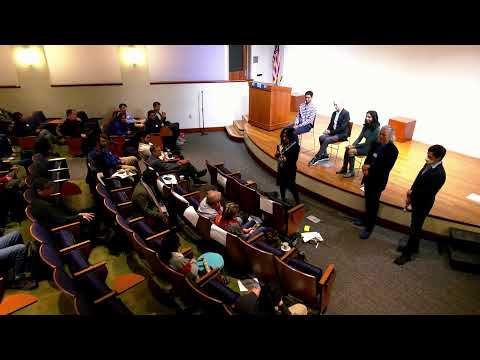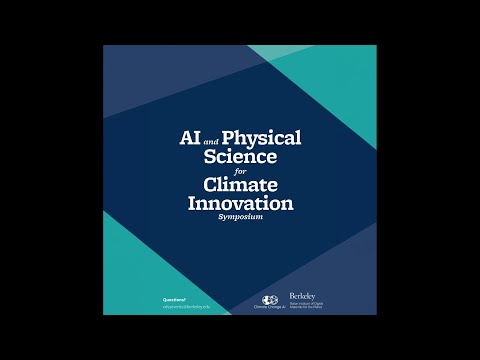Special guest speakers Chelle Gentemann and Lika Guhathakurta describe new NASA Headquarters initiatives for open, collaborative and interdisciplinary science—bridging fundamental discovery with social impact.
UC Berkeley's Fernando Pérez and Jennifer Chayes join our featured speakers on-stage for a panel discussion about how open source science is transforming the landscape of research, education, culture, and more.
Live Stream Date: October 26, 2022
Time: 2:00 PM PDT About the speakers:
Chelle Gentemann is science lead for the $40 million, 5-year Transform to Open Science (TOPS) mission at NASA Headquarters. TOPS goals are to train 20,000 scientists in open science, enable 5+ major discoveries that use an open, collaborative science approach, and double participation by historically excluded groups in NASA science. Chelle is an advocate for open science, open source software, and inclusivity. As a physical oceanographer focused on remote sensing, she has worked for over 25 years on retrievals of ocean temperature from space and using that data to understand how the ocean impacts our lives.
Lika Guhathakurta is senior advisor for new initiatives at Goddard Space Flight Center and program scientist at NASA Headquarters. She led the development of heliophysics as an integrated scientific discipline from which fundamental discoveries about our universe provide direct societal benefits. Lika made possible flagship missions that revolutionized our understanding of how the sun shapes space weather in the solar system. Since 2017, she has been the driving force at NASA Headquarters and NASA Ames behind the growth of Frontier Development Laboratory in applied artificial intelligence both in terms of the breadth of problem areas tackled and in the number of agency and industry partners. The types of innovative solutions include virtual telescopes, data fusion, edge computing, and autonomy. This approach will have an enduring imprint on the way science and exploration is carried out by future generations.
Fernando Pérez is associate professor in statistics at UC Berkeley and scientist at Lawrence Berkeley National Lab. He builds open source tools for humans to use computers as companions in thinking and collaboration, mostly in the scientific Python ecosystem (IPython, Jupyter and friends). A computational physicist by training, Fernando’s research interests include questions at the nexus of software and geoscience, seeking to build the computational and data ecosystem to tackle problems like climate change with collaborative, open, reproducible, and extensible scientific practices. He is a co-founder of Project Jupyter, the 2i2c.org initiative, the Eric and Wendy Schmidt Center for Data Science and Environment at Berkeley, the Berkeley Institute for Data Science, and the NumFOCUS Foundation. He is a recipient of the 2017 ACM Software System Award and the 2012 FSF Award for the Advancement of Free Software.
Jennifer Chayes is Dean of UC Berkeley College of Computing, Data Science, and Society, and dean of the School of Information at UC Berkeley. She is a professor of Electrical Engineering and Computer Science, Information, Mathematics and Statistics. For 23 years, she was at Microsoft, most recently as Technical Fellow, where she co-founded and led three interdisciplinary labs in Cambridge, MA, New York City, and Montreal. She is a member of the National Academy of Sciences and the American Academy of Arts and Sciences. Jennifer has received numerous awards and honors including the 2015 John von Neumann Award of the Society for Industrial and Applied Mathematics and honorary doctorates from Bard College and Leiden University. She is one of the inventors of graphons, widely used in machine learning of networks. Her recent work also includes applications of machine learning to cancer immunotherapy, ethical decision-making, and climate and sustainability. Music: Inspire and A New Beginning, by Bensound



